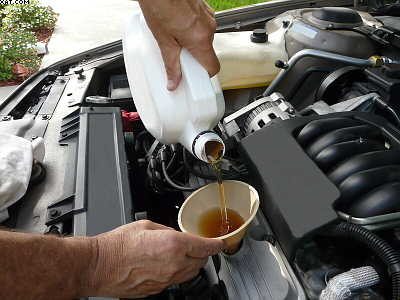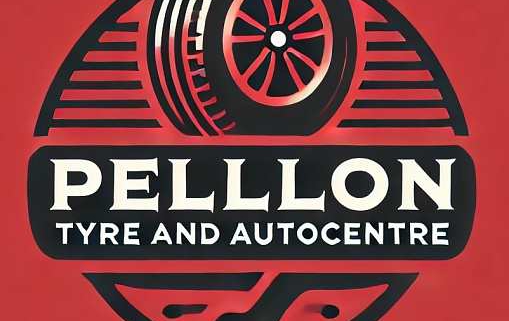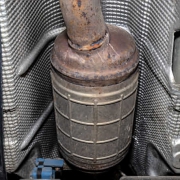Diesel particulate Filters Law
Table of Contents
Diesel particulate Filters Law

Diesel particulate Filters Law
Oil helps reduce vehicle emissions
New laws are making car manufacturers vastly reduce the emissions of new models that they produce. One of the ways to do this is by fitting complicated exhaust after-treatment units to their cars. It means that new low-sample oil must be used to protect these units. New laws will be coming out in 2014 to reduce emissions even further. For further reading, follow “Diesel net”.
Another large change that is now becoming more common is the development of the “extended service intervals”, This means that the car owner needs to use special long-life oils to meet the extra demands of the longer service intervals. Most service centres will have the computer technology to state the exact oil that the car requires, but things are becoming more difficult for the DIY motorists amongst us.
New Diesel particulate filters Law: Indeed, using the wrong oil in your car can cost you around £2500
For a new engine unit, this is the average cost of a family-sized saloon engine replacement. I am not trying to scaremonger, but the stuff in your engine is becoming more critical. The number of 5W-30 oil types now used on modern cars has increased dramatically; this is because of the number of reasons introduced by the car manufacturers.
Any motorist getting this wrong will end up in trouble and possibly with a large bill. It is now becoming more important to have your vehicle serviced at a reputable service centre. Even an engine service will be better than nothing. Do not forget that good service centres will have all the help from the oil companies to make sure that they get the correct product for their car.
The wrong oils will block up your diesel particulate filter or poison your three-way catalytic converter, all at a terrible cost. Also, do not forget to get the correct oil mix, for example, synthetic or semi-synthetic oils. Or even diesel or petrol oils, all have different properties, so if in doubt,. So, have your car serviced by professionals, and don’t take the risk of a damaged engine.
Indeed! Now, let’s explore the realm of Diesel Particulate Filters (DPFs) and their mechanisms for minimising vehicle emissions, with a hint of local relevance.
Ensuring Air Quality: The Role of Diesel Particulate Filters (DPFs) in Maintaining Clean Air in Halifax and the UK
Located in the centre of Halifax and around the United Kingdom, our passion for automobiles is boundless. However, we are also becoming more conscious of the imperative to maintain clean air. An approach we are employing is the utilisation of Diesel Particulate Filters, commonly referred to as DPFs. These innovative devices serve a crucial role in mitigating emissions from vehicles powered by diesel engines, resulting in cleaner roads and fresher air.

Grasping the Fundamentals: Diesel particulate Filters Law
DPFs function as the respiratory system of your diesel car, and this is the mechanism by which they operate:
- Capturing Particulate Matter: During the operation of your diesel engine, it generates minuscule particles referred to as particulate matter (PM). These particles significantly contribute to the contamination of the air. This is the point at which the Diesel Particulate Filter (DPF) becomes relevant.
- It is an intelligent apparatus integrated into the exhaust system of your vehicle. The Diesel Particulate Filter (DPF) effectively collects and retains hazardous particulate matter (PM) particles when exhaust fumes flow through it.
- Regeneration Process: DPFs do not possess magical properties. Over time, the airways might accumulate obstructions from the trapped particles.
- This is the point at which the regeneration process begins. The engine management system of your car checks the condition of the DPF and periodically increases the exhaust temperature to incinerate the particles that are trapped in it.
- It is like thoroughly cleansing your DPF.
Incorporating a Regional Influence: Diesel particulate Filters Law
Diesel-fueled machinery has been present in significant amounts in Halifax, which is known for its prosperous industrial past. Diesel engines have had a substantial impact on our community, influencing many industries, such as textile mills and transportation. Currently, by using Diesel Particulate Filters (DPFs), we are actively contributing to the improvement of air quality in our historic streets.
The advantages:
DPFs effectively decrease the release of noxious pollutants, such as soot and particle matter, guaranteeing improved air quality for our communities.
Fuel Efficiency:
Cleaner engines typically exhibit higher fuel efficiency, resulting in cost savings at the fuel station. This situation is advantageous both for your finances and for the natural world.
DPFs contribute to the longevity of your vehicle by promoting engine cleanliness and minimising mechanical deterioration.
In conclusion: Diesel particulate Filters Law
As citizens of Halifax and the UK, it is crucial that we persist in adopting technologies such as Diesel Particulate Filters. These initiatives not only help improve air quality but also support our dedication to conserving our local heritage and promoting a sustainable future for future generations.
When driving your diesel-powered vehicle, keep in mind that the DPF is actively working to maintain clean streets and fresh air in Halifax. This is a modest but important contribution towards a more environmentally friendly and healthier city.
- BMW Minis Run Flat Tyres
- Fiat Punto Broken Spring
- Dunlop Tyres
- 1234YF Car Air conditioning gas
- Buick 8 For MOT Test
Pellon Auto Centre in Halifax offers to service at excellent rates.

